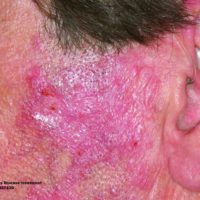Description
Graves’ Disease Natural Treatment. This remedy contains reducing agents to reduce the Disease as much as possible. It is an excellent remedy.
Graves’ Disease: Graves’ Disease Natural Treatment
Click below to order clove oil
Book an appointment with lady feranmi on
OVERVIEW
What is Graves’ disease?: Graves’ Disease Natural Treatment
Graves’ illness is a type of autoimmune disease that damages the thyroid gland. This butterfly-shaped gland in the neck produces hormones that regulate how your body uses energy (metabolism).
Graves’ disease is the main cause of hyperthyroidism (overactive thyroid gland). People with Graves’ disease make too much thyroid hormone, which can damage the heart and other organs. The condition gets its name from Robert Graves, an Irish doctor who first described the condition in the 1800s.
Where is your thyroid?
This thumb-sized gland sits at the base of your neck. It’s below your Adam’s apple and in front of your windpipe. A bridge made of tissue connects the right and front lobes, or sides, of the gland, giving the thyroid a butterfly shape.
How common is Graves’ disease?
Graves’ disease affects one out of every 200 Americans, making it the top cause of hyperthyroidism.
Who might get Graves’ disease?
Graves’ disease affects more women than men. It typically occurs in people between the ages of 30 and 50. The condition tends to run in families.
Your risk of developing Graves’ disease increases if you have:
- Family history of thyroid disease.
- Another autoimmune diseases, such as rheumatoid arthritis, lupus or Type 1 diabetes.
- Celiac disease.
- Hormone disorder, such as Addison’s disease.
- Pernicious anaemia (iron deficiency caused by a lack of vitamin B12).
- Vitiligo is a skin disorder that changes skin colouration.
SYMPTOMS AND CAUSES: Graves’ Disease Natural Treatment
What causes Graves’ disease?
Experts don’t know what causes autoimmune diseases like Graves’ disease. Something triggers the immune system to overproduce an antibody called thyroid-stimulating immunoglobulin (TSI). The trigger may be a combination of genes and exposure to a virus. TSI attaches to healthy thyroid cells, causing the gland to overproduce thyroid hormones.
What are the symptoms of Graves’ disease?
Hyperthyroidism speeds up certain body functions. Symptoms of Graves’ disease include:
- Difficulty sleeping.
- Enlarged thyroid (goitre).
- Eye inflammation that causes eyeballs to protrude from sockets.
- Fast, irregular heartbeat (arrhythmia).
- Fatigue.
- Hand tremors.
- Heat intolerance.
- Irritability.
- Muscle weakness.
- Unexplained weight loss.
DIAGNOSIS AND TESTS
How is Graves’ disease diagnosed?
Your healthcare provider may make a diagnosis based on your symptoms, such as an enlarged thyroid, and a family history of thyroid or autoimmune disease. You may also have these tests to confirm a Graves’ disease diagnosis:
-
Blood test:
Thyroid blood tests measure TSI, an antibody that stimulates thyroid hormone production. Blood tests also check amounts of thyroid-stimulating hormones (TSH). A low TSH level indicates that the thyroid gland is producing too much hormone. The overproduction causes the pituitary gland to make less TSH.
- Radioactive iodine uptake (RAIU) test: The thyroid collects iodine from the blood to make thyroid hormone. With the RAIU test, you swallow a small amount of radioactive iodine. Ingesting a radioactive material might sound scary, but this treatment safely targets thyroid cells only the rest of your body isn’t affected. A device measures the amount of iodine the thyroid gland absorbs. High levels of iodine absorption can be a sign of Graves’ disease.
Click below to order clove oil
Thyroid scan: Graves’ Disease Natural Treatment
A thyroid scan is an imaging test that utilizes radioactive material to look at how the thyroid is working. It is typically done by injecting a material called technetium before the test, waiting a short period and then creating images of the thyroid. During the scan, your provider will see a picture of the gland, as well as be able to see the gland’s uptake pattern. This pattern helps tell your provider how well the gland is working. It can also be a part of the diagnosis process in that if you have diffuse (spread out) high uptake, it’s likely Graves’ disease. If there are focal (specific) areas of uptake, this is more likely to be a different type of hyperthyroidism.
There are also two types of antibodies linked with Graves’ disease that may be detected during your tests. These antibodies include TSI (thyroid-stimulating antibodies), as well as TBII (thyrotropin binding inhibitory immunoglobulins).
In some patients, there will be negative antibodies and the diagnosis will depend on their lab results (mainly TSH, but also FT4 and FT3), radioiodine uptake and thyroid scan.
MANAGEMENT AND TREATMENT
How is Graves’ disease managed or treated?
Graves’ disease is a lifelong condition. However, treatments can keep the thyroid gland in check. Medical care may even make the disease temporarily go away (remission):
- Beta-blockers: Beta-blockers, such as propranolol and metoprolol, are often the first line of treatment. These medications regulate your heart rate and protect your heart until other hyperthyroidism treatments take effect.
- Antithyroid medications: Antithyroid medications, such as methimazole and propylthiouracil, block the gland’s production of thyroid hormone. In a small percentage of people, these medications cause skin rashes and low white blood cell count, which may increase your risk of infection. Rarely, the liver disease develops.
- Radiation therapy: Radioiodine therapy involves taking one dose of radioactive iodine in pill or liquid form. Over two to three months, radiation slowly destroys thyroid gland cells. (The rest of your body isn’t exposed to radiation.) As the thyroid gland shrinks, hormone levels return to normal. Women who are pregnant or breastfeeding shouldn’t get this treatment.
- Surgery: A thyroidectomy involves surgically removing all or part of the thyroid gland. After surgery, some people produce too little thyroid hormone (a condition called hypothyroidism).
HERBAL TEA TECHNICAL SHEET:
Weight:50g
Compositions: Organic plant extracts, seafood, etc.
Properties: Micronutrients iodine, zinc, manganese, magnesium
Active ingredients: Micronutrients iodine, zinc, manganese, magnesium
Indications of Graves’ Disease
Presentation: Powder in jar or sachet
Instructions for use: Read the instructions
Side effects: Salty taste
Duration of treatment: long term
Price:50 euros
Presentation of the herbal tea
-Powder in 50g bags
Composition
-Organic plant extracts
Active ingredients
The side effect is A slightly salty taste
Price: 20 €.
Therapeutic effect
Remedy 290: Graves’ Disease Natural Treatment, Hyperthyroidism is a complex of medicinal plants, roots, barks, dried fruits, seaweed and seafood rich in iodine and elements precious to the thyroid glands. This remedy also contains reducing agents to reduce Graves’ Disease as much as possible. It is an excellent remedy that can help you avoid surgery.
Indications
Graves’ Disease
Directions for use:
Read the instructions
What are the complications of Graves’ disease?
Untreated or poorly managed Graves’ disease increases your risk for these complications:
- Eye disease: Thyroid eye disease, or Graves’ ophthalmopathy, occurs when the immune system attacks muscle and tissue around the eyes. Inflammation causes the eyes to protrude or bulge. These changes can cause double vision (seeing two of the same image) and light sensitivity. Severe swelling can damage the optic nerve and lead to vision loss.
- Heart problems: Uncontrolled Graves’ disease can cause arrhythmia (irregular heartbeat). Arrhythmia increases your risk of stroke, heart failure and other heart problems.
- Skin problems: A small number of people with Graves’ disease develop red, thickened skin on their shins and feet. This condition is called Graves’ dermopathy or pretibial myxedema. The condition isn’t painful, but it can be uncomfortable.
- Thyroid storm: Dangerously high thyroid activity speeds up body functions. It causes arrhythmia, fast pulse and shock. This life-threatening condition is known as a thyroid storm. It requires fast treatment with antithyroid medications.
How does Graves’ disease affect pregnancy?
Thyroid hormones play a key role in the development of a baby’s brain and nervous system. An untreated hyperthyroidism during pregnancy can be harmful to you and your unborn child. Your healthcare provider may test your hormone levels monthly to ensure they stay within a safe range. Too much thyroid hormone during pregnancy can increase the risk of:
- Low birth weight (newborns who weigh less than 5 pounds, 8 ounces).
- Miscarriage (loss of pregnancy before the baby is fully developed).
- Preeclampsia (high blood pressure during pregnancy).
- Premature labour (birth that occurs before the 37th week of gestation).
- Infant hyperthyroidism (high thyroid hormone levels in a newborn).
- Congestive heart failure in mother.
PREVENTION
How can I prevent Graves’ disease?
Experts still aren’t certain what causes autoimmune diseases like Graves’ disease. Currently, there’s no known way to prevent the illness.
Click below to order clove oil
Book an appointment with lady feranmi on
https://r.africbio.com/shop/natural-osteonecrosis-treatment/







